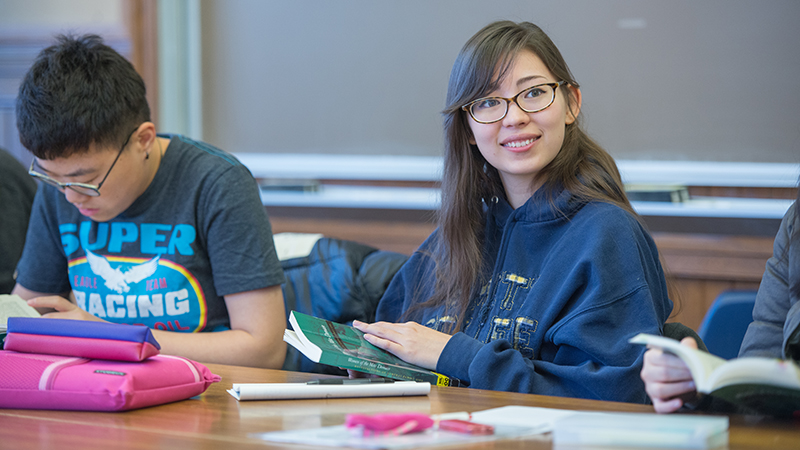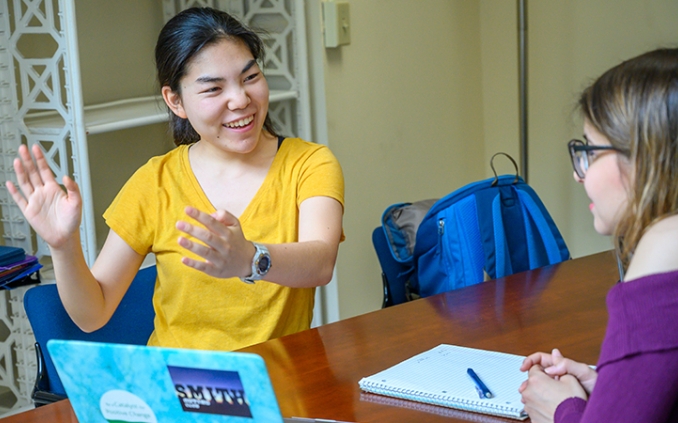The Curriculum

You may be wondering what will be expected of you academically and how academic life at Smith compares with that at your high school. Most students find the course work at Smith to be very challenging. Smith assigns each new student to a faculty adviser to help you choose courses and successfully adjust to your workload.
Essential Capacities
Every student, during her time at Smith, is encouraged to reflect on her development in a number of essential capacities that should guide her education, both in and beyond the classroom.
- Ability to draw upon and convey knowledge
- Ability to engage across difference in place, culture and time
- Creativity, curiosity and innovation
- Critical and analytical thinking
- Resilience and resourcefulness
- Self-awareness as a learner
It is the student’s responsibility, in close collaboration with faculty and staff, to develop these capacities over the course of an academic career. There are a number of pathways a student might travel to attain the capacities, and students should reflect on their individual progress as they choose their courses and co-curricular programs. The capacities should also serve as an aid to faculty advisers who assist students in navigating the curriculum and accessing key resources.
What each major sees as crucial skills, literacies and abilities is also a dynamic list, one that each student, in consultation with her major adviser, should elaborate uniquely using the Essential Capacities as a guide.
Seven Major Fields of Knowledge
Each discipline within the liberal arts framework offers students a valid perspective on the world’s past, present and future. Therefore, we recommend that students pursue studies in each of the following fields.
- Literature, either in English or in some other language, because it is a crucial form of expression, contributes to our understanding of human experience and plays a central role in the development of culture;
- Historical studies, either in history or in historically oriented courses in art, music, religion, philosophy and theatre, because they provide a perspective on the development of human society and culture and free us from the parochialism of the present;
- Social science, because it offers a systematic and critical inquiry into human nature, social institutions and human relationships;
- Natural science, because of its methods, its contribution to our understanding of the world around us and its significance in modern culture;
- Mathematics and analytic philosophy, because they foster an understanding of the nature and use of formal, rational thought;
- The arts,because they constitute the media through which people have sought, through the ages, to express their deepest feelings and values;
- A foreign language, because it frees one from the limits of one’s own tongue, provides access to another culture and makes possible communication outside one’s own society.
We further recommend that students take performance courses offered in exercise and sport studies, because they provide opportunities for recreation, health and the development of skills for the complete person.
Latin Honors
Students who wish to become eligible for Latin Honors at graduation or who wish to have Liberal Arts Commendation indicated on their transcripts must elect at least one course (normally four credits) in each of the seven major fields of knowledge.
Studying
Although study time varies considerably from student to student and course to course, you’ll typically be expected to spend two to three hours outside of class preparing for each hour you spend in class. Think of it as your full-time job, spending more than 40 hours a week preparing for classes and laboratories. That’s a lot of studying, so learn to pace yourself and manage your time—and don’t forget that making time for relaxing activities helps you return to your schoolwork refreshed.



